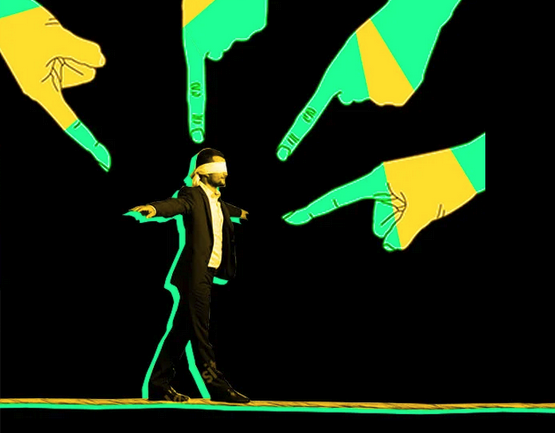The Illusion of Control
We often believe we have everything under control, but how much can we really influence? Many of us think we won the lottery because we can guess the right numbers. We believe that pressing the elevator button five times instead of once will make the doors close faster. Where does this confidence come from—the belief that we control situations that are actually beyond our influence? According to psychologist Jeremy Dean, this happens unconsciously but significantly affects our decisions.
What Is the Illusion of Control?
Sometimes, we think we can influence events that are actually out of our hands. For example, we buy delicious apples and start to believe we know how to pick the best ones, when in reality, the store just happened to stock a great variety. We buy a lottery ticket, win a million, and decide we have a knack for picking lucky numbers, even though the outcome is pure chance. Most people know this deep down, but we secretly hope our chosen numbers matter.
This is called the illusion of control. The term was coined over forty years ago, and the effect has been confirmed in numerous experiments. Sometimes, this illusion shows up as so-called magical thinking. In one experiment, participants watched someone try to throw a basketball into a hoop. When they all wished him luck and he made the shot, they believed they had helped, even though they did nothing.
A Helpful Delusion?
Some believe the illusion of control is beneficial because it encourages people to take responsibility. For example, someone diagnosed with an illness may feel they can control it by taking medication, changing their diet, and adopting a healthier lifestyle.
Research shows that patients allowed to take painkillers as needed usually take a lower dose than those who follow strict doctor’s orders. “Believing we can control a situation motivates us to act, even when the odds of success are very low,” says psychologist Jeremy Dean. Would you apply for jobs if you knew you had almost no influence over the employer’s decision? Probably not. But without trying, you wouldn’t get hired at all.
However, the illusion of control isn’t always helpful. Financial professionals often overestimate their ability to predict market trends. The more convinced they are that they’re in control, the less effective they become. The winners are the cautious ones who don’t rely on luck.
It’s no surprise that some researchers believe the illusion of control prevents us from learning from mistakes and listening to constructive feedback. The more convinced we are that we’re in charge, the more likely we are to ignore warning signs from the outside world.
The “Illusion of Powerlessness”
The illusion of control can sometimes make us act recklessly. But the opposite can also happen. Sometimes, we need to take charge, but we convince ourselves that nothing depends on us. To confirm this, a group of psychologists led by Professor Francesca Gino conducted a series of game-based experiments at Harvard Business School. They found that participants given complete freedom of choice underestimated their ability to influence the outcome.
So, are those who say the illusion of control is useful right? In some situations, yes. We know that applying for more jobs increases our chances of getting hired. We know that exercising improves our health, and that losing weight requires eating fewer calories. We know we shouldn’t spend money on a tenth purse if we’re saving for a car.
In each of these cases, everything depends on us, but strangely, we often believe the opposite. “Perhaps this effect should be called the ‘illusion of powerlessness.’ In other words, when we have full control over a situation, we tend to underestimate our abilities. Maybe that’s why we often don’t do enough,” the psychologist concludes.



